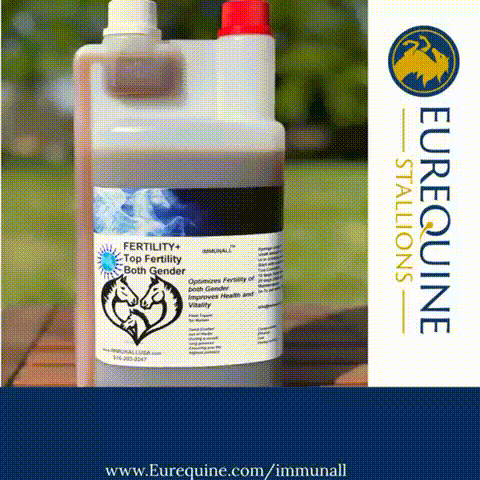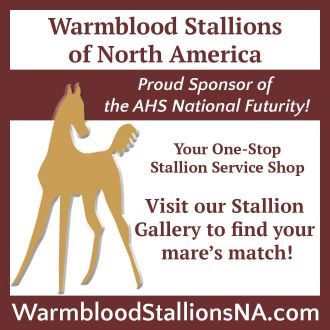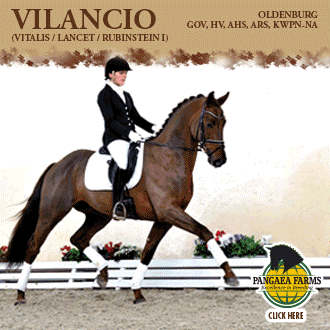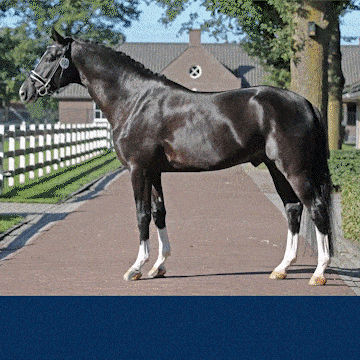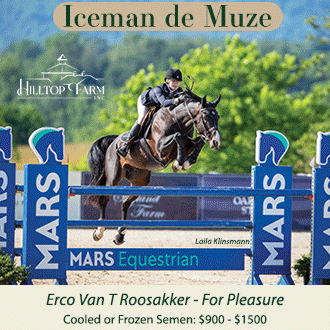AHS Webinars
The Journey to Germany: Kasey Cannon and Diesel CF
INTERVIEW WITH: Kasey Cannon
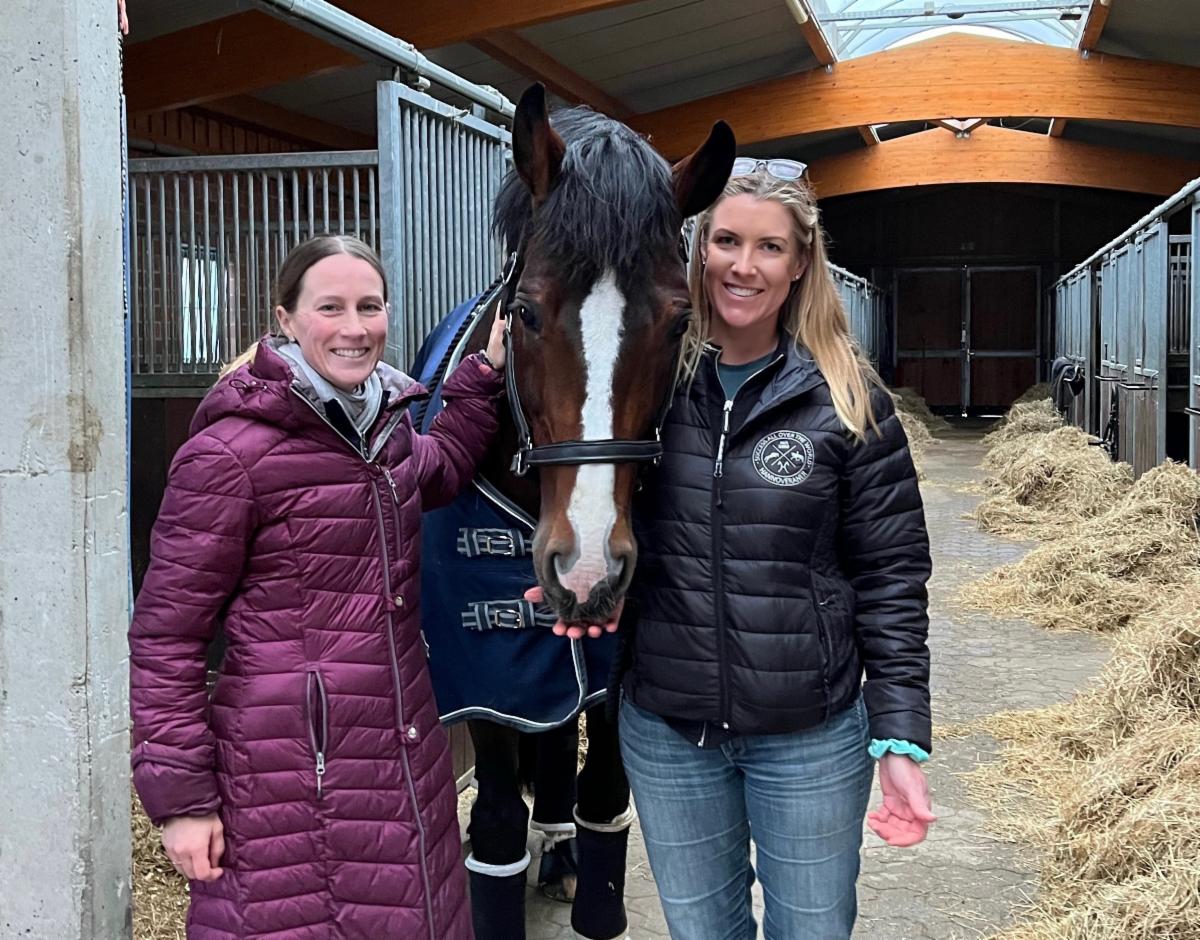
A trip two years in the making was finally able to come true. American Hanoverian Society member Kasey Cannon and her Hanoverian dressage stallion, Diesel CF, embarked on a 60-day life-changing journey this past year when they boarded a Qatar Airways flight to Billerbeck, Germany to train with German Olympian, Helen Langehanenberg. Kasey and Diesel’s journey began when Kasey reached out to Damsey’s owner, Susanne Meyer, to inquire if training with Helen would be an option for her. Immediately Kasey was put into contact with Helen and their dream turned into reality.
| The Journey to Germany: Kasey Cannon and Diesel CF |
| 01/12/2022; 05:22 PM |
| Play Recording (0:56.19) Recording Password: Br8xJvm4 |
Angular & Flexural Limb Deformities
PRESENTED BY: Dr. Scott Hopper, DVM, MS, DACVS
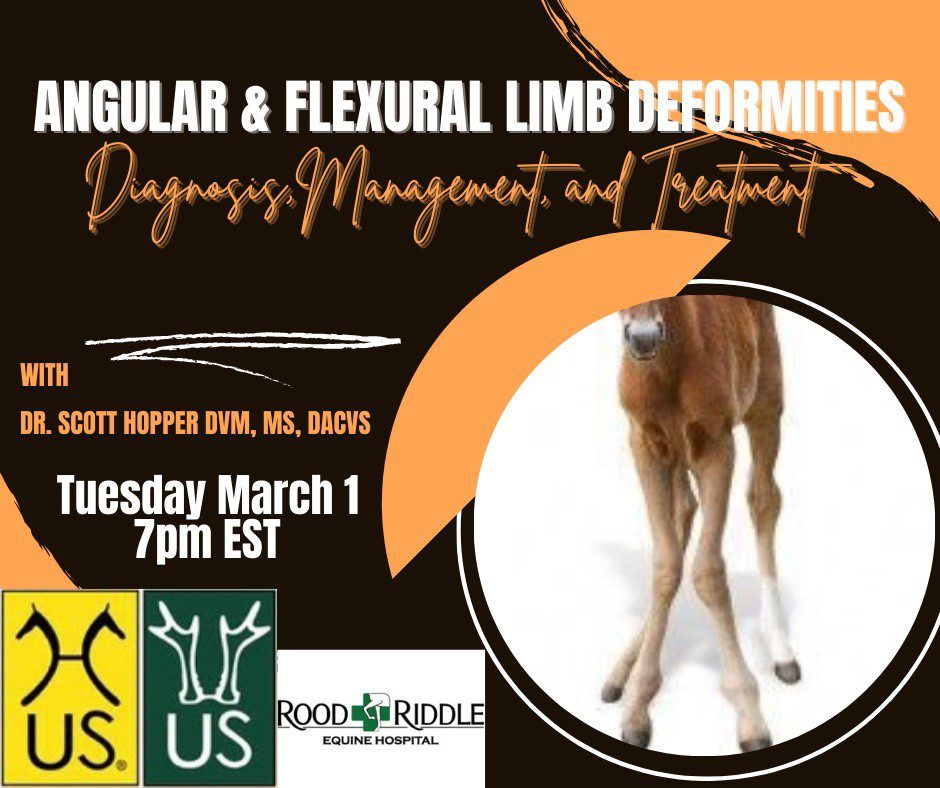
On Tuesday, March 1st at 7:00 PM EST the Education Committee hosted a webinar titled “Angular Limb Deformities: Diagnosis, Management, and Treatment”. Dr. Scott Hopper, DVM, MS, DACVS was our guest speaker. He is a 1993 graduate of the University of Wisconsin College of Veterinary Medicine and a shareholder at Rood & Riddle Equine Hospital in Lexington, KY. Dr. Hopper completed a one-year hospital internship at Rood & Riddle in 1994, followed by a surgical residency at Washington State College of Veterinary Medicine in 1997. He became board certified in surgery in 1999.
| Angular & Flexural Limb Deformities |
| Tuesday, March 22, 2022 | 8:57 PM EST |
| Play Recording (1:12.43) Recording Password: DutRSGP3 |
Foaling with Dr. Tena Boyd
PRESENTED BY: Dr. Tena Boyd, D.V.M.
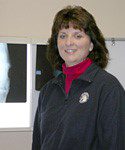
We are also honored to have Dr. Tena Boyd, D.V.M. speak to us about foaling. Dr. Boyd was educated at Virginia Tech and has been with the Old Waterloo Equine since 1996. Dr. Boyd’s special veterinary interests include equine breeding management and reproductive medicine, neonatal medicine (conception through birth and weaning), as well as preventive health care.
| Foaling with Dr. Tena Boyd |
| Saturday, March 12, 2022 | 4:27 PM EST |
| Play Recording (59 minutes) Recording Password: 2PgWR8R4 |
Equine Genetics - Exploring the Heritability of Size, Temperament and Performance
PRESENTED BY: Dr. Laura Patterson Rosa, DVM, Ph.D.
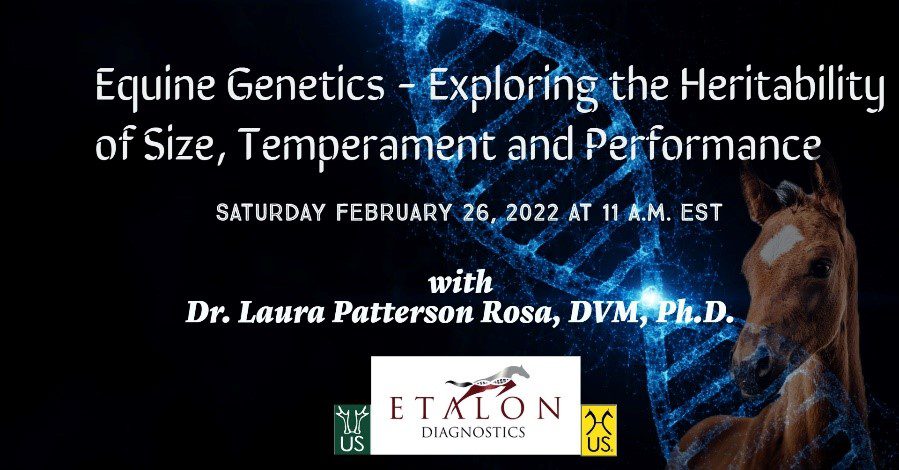
Our discussion will cover size (the LCORL a/k/a/ H2 gene), temperament (curious/vigilant), and performance factors like muscle type (sprint, mid-distant, endurance) and roaring (RLN)
| Equine Genetics - Exploring the Heritability of Size, Temperament and Performance” with Dr. Laura Patterson Rosa |
| Saturday, February 26, 2022 |
| 1:45 PM | (UTC-05:00) Eastern Time (US & Canada) |
| Play recording (1 hr 50 mins) Recording password: Education2262022 |
Bit Fitting Essentials
Co-Hosted with Beth Haist of The Horse of Course & Dr. Brad Tanner, DVM, DAVDC-EQ of Rood and Riddle
Tuesday Oct 26 4pm PT/7pm ET
FREE TO ALL
Picking the right bit for your horse is crucial. Many riders use wrongly fitted, or mismatched bits because they’re convenient, misunderstood, or they just don't know better. Join us with renowned experts, Beth Haist and Dr. Brad Tanner, to increase your knowledge about correct bitting to make your horse happier while working and improve your partnership.
Beth will cover correct fit, the effects of various mouthpieces and ring styles, and competition legality for both snaffle and double bridles. Brad will focus on dental considerations for young horses starting under saddle and issues to look for in adult horses that might be having problems with contact.
THIS WEBINAR WILL BE OPEN AND FREE FOR MEMBERS and NON-MEMBERS.
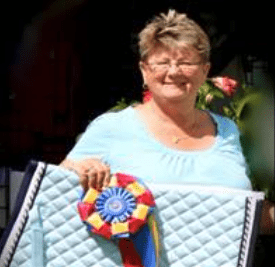 The Horse of Course was founded in 1995 by Beth Haist. Beth's job with American Airlines often sent her to Europe; as an equestrian, she found herself exploring the tack shops of Germany and France. Trained by bit engineers in Europe, and not working for individual bit manufacturers, her focus is to find the right equipment for you and your horse.
The Horse of Course was founded in 1995 by Beth Haist. Beth's job with American Airlines often sent her to Europe; as an equestrian, she found herself exploring the tack shops of Germany and France. Trained by bit engineers in Europe, and not working for individual bit manufacturers, her focus is to find the right equipment for you and your horse.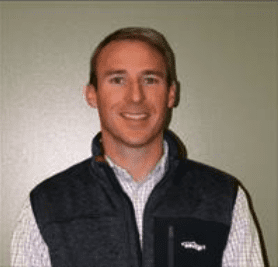 Dr. Brad Tanner, DVM, DAVDC-EQ of Rood and Riddle, is one of only a few Board-Certified Veterinary Dentists and is a Diplomate of the American Veterinary Dental College.
Dr. Brad Tanner, DVM, DAVDC-EQ of Rood and Riddle, is one of only a few Board-Certified Veterinary Dentists and is a Diplomate of the American Veterinary Dental College.
Dr. Tanner's Presentation: Dr-Tanner_Hanoverian-Society-Oct-2021 Download
| Bit Fitting Essentials-20211026 2301-1 |
| Tuesday, October 26, 2021 |
| 8:53 PM | (UTC-04:00) Eastern Time (US & Canada) |
| Play recording (1 hr 29 mins) Recording password: CyPFbRH2 |
Equine Genetics and Inheritable Diseases
PRESENTED BY: Dr. Samantha Brooks
July 29th, 2021 at 7pm EST/4pm PST
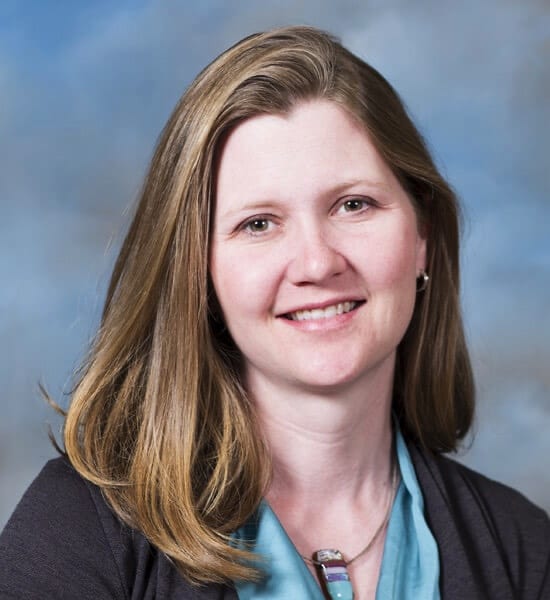
FREE TO ALL
Join us for our next educational webinar about equine genetics and inheritable diseases such as PSSM and OCDs. We will also be discussing the heritability of disposition and temperament and the genes recently found for curiosity and vigilance. For some fun, we will finish the evening talking about coat color genetics! THIS WEBINAR WILL BE OPEN AND FREE FOR MEMBERS and NON-MEMBERS.
A lifelong horsewoman, Dr. Samantha Brooks was diverted from vet school by a budding passion for equine research. Following a Bachelor of Science degree in Agricultural Biotechnology, Dr. Brooks remained at the University of Kentucky to study at the Gluck Equine Research Center. While there she earned her Ph.D. in Veterinary Science, specializing in Equine Genetics under the mentorship of Dr. Ernest Bailey. Following her Ph.D. she was awarded the Paul Mellon Postdoctoral Fellowship to study the expression of inflammatory genes in horses affected with laminitis. As an assistant professor at Cornell University, she was responsible for the Equine Biology and Management course for six years. Now at the University of Florida, her research program explores a variety of topics relevant to horse health ranging from gene expression studies to mapping of genetic disorders in the horse. Previously her research group discovered genetic mutations and markers for coat colors, height, sarcoid tumors, and two neurological conditions. Ongoing work targets variation in gait, susceptibility to infectious disease, metabolic syndrome, and skeletal defects using genome-wide association, genome re-sequencing, and transcriptomics.
| AHS Educational Webinar: Equine Genetics & Inheritable Diseases with Dr. Samantha Brooks |
| Friday, July 30, 2021 |
| 4:08 AM | (UTC-04:00) Eastern Time (US & Canada) |
| Play recording (8 hrs 1 mins) Recording password: xMubAJX2 |
Part 3: Performance Nutrition: Providing the Management Tools to Support the Performance Horse
May 29, 11 a.m. ET
FREE TO AHS MEMBERS; $35 for nonmembers (become a member)
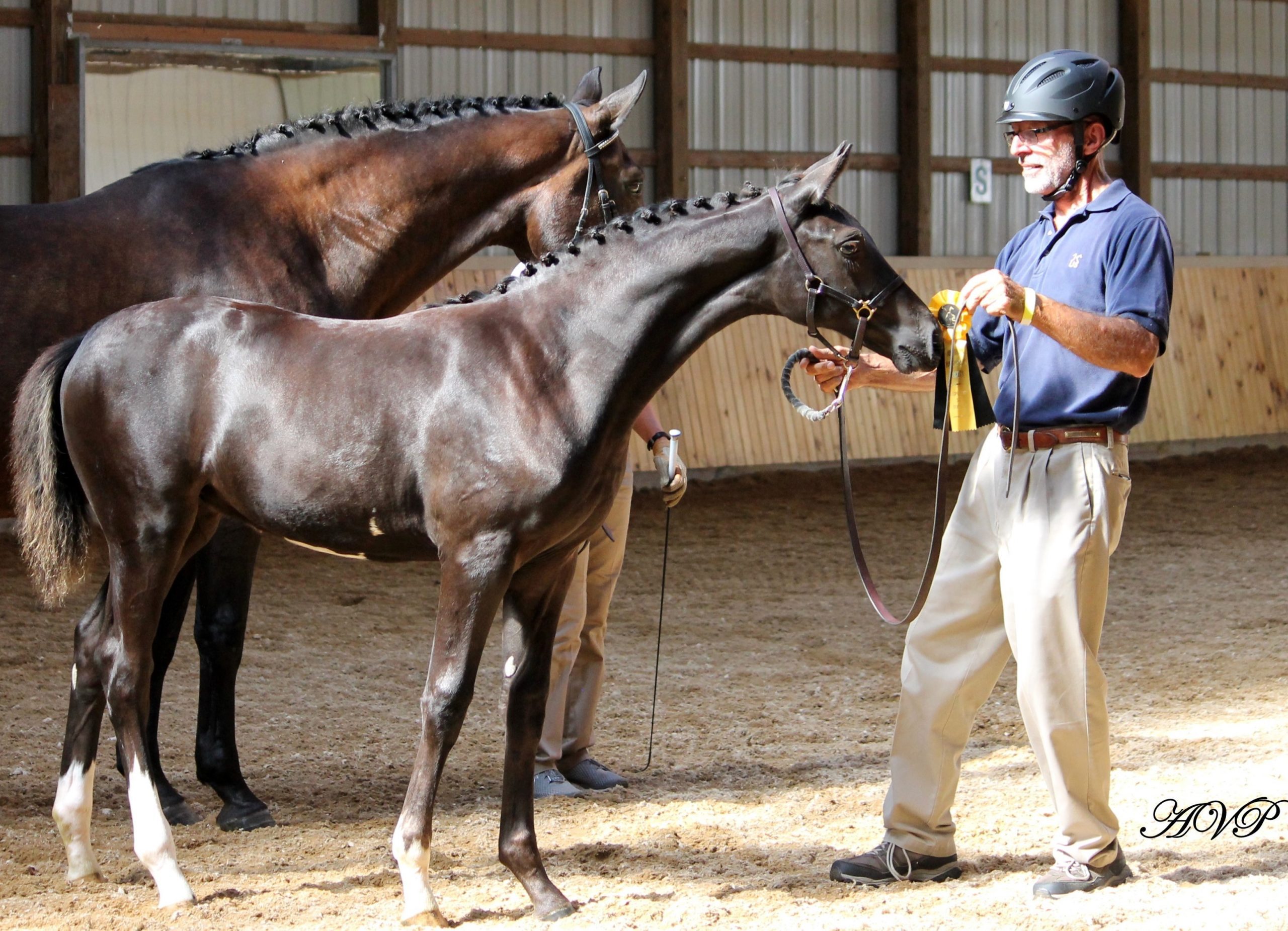
In this session of the series, Don will outline how to meet the nutrient needs of Performance Horses, based on their size and level of performance. This will include selecting the optimal food to supply the appropriate “fuel” for their type of muscles (fast twitch or slow twitch). He will talk about decreasing the recovery time after exercise by knowing how much and when to provide a performance electrolyte, which will not only help your horse to “bounce back” but also help him to perform at the same high level on the second and the third days of competition.
The handouts include a chart to help owners and trainers determine the calories in any particular feed, based the fat and fiber levels as well as which is “best” to feed based on the type of muscles the horse has.
Don will provide tools to help you determine your horse’s intensity of work-load and provide the Recommended Nutrition Allowances that could add to their longevity as a performance horse. Don’s goal is to give you nutritional information that will allow your horses to perform up to their genetic potential and move forward into the future, so you can enjoy them longer.
Sign Up for the May 29, 2021 Webinar
- Click on the appropriate heading below to sign up for the webinar.
- WebEx links to each individual webinar will be included in the confirmation email you receive after successfully completing the signup form.
- Download handouts here. Please read before the presentation.
- The session will be recorded and posted on the AHS website for those who cannot make this date.
| American Hanoverian Society Webinar-20210529 1505-1 |
| Saturday, May 29, 2021 |
| 12:47 PM | (UTC-04:00) Eastern Time (US & Canada) |
| Play recording (1 hr 26 mins) Recording password: xYVpRwX4 |
Part 2: Feeding the Suckling, Weanling, and Yearling and Managing the Orphaned/Rejected Foal
April 24, 11 a.m. ET
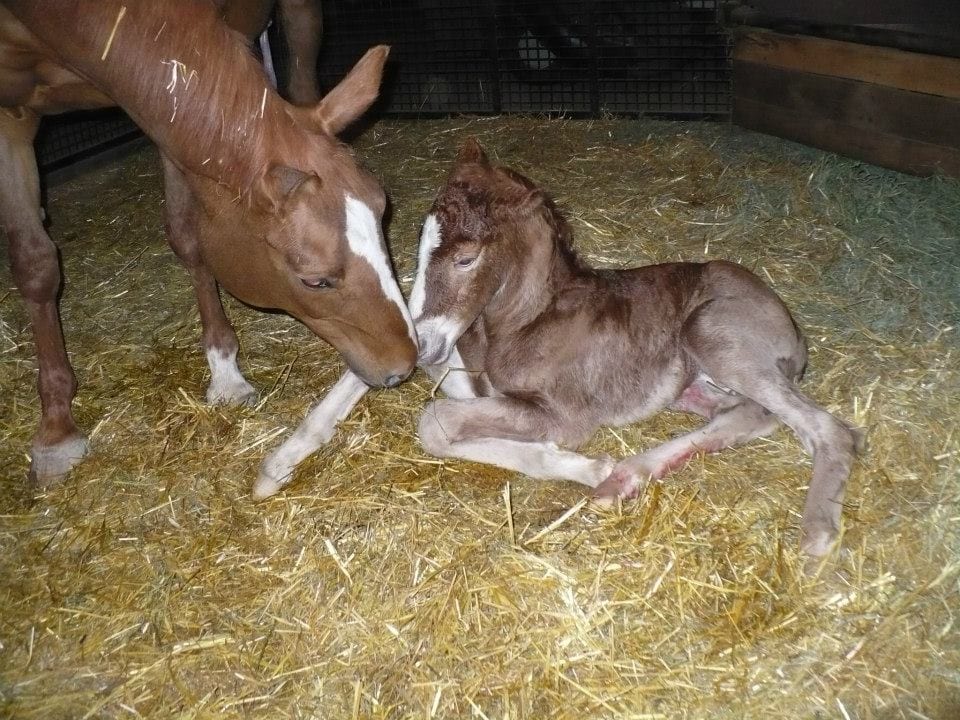
FREE TO AHS MEMBERS; $35 for nonmembers (become a member)
Learn how the newborn foal’s digestive enzymes slowly change from digesting only milk to digesting carbohydrates and then fermenting forages. The growth of various portions of the gastrointestinal tract parallels the changes in the foal’s enzyme activity: Find out what food complements those changes and reduces the chance of digestive upset (e.g., diarrhea).
Don will outline the different growth rates and how they affect the necessary mineral density of weanling and yearling diets to support their development. He will review their ages and how to complement their "times" of growth-plate closures, which is recommended to reduce nutrition-related skeletal and soft tissue anomalies. In addition, Don will discuss why the quality and grade of forage young horses eat has a dramatic effect on their overall health and development.
You will walk away with the tools to assure optimal forage is fed and to reduce the amount of a “grain mixture” needed to maintain your foal's body conditioning score (BCS) and allow you to concentrate on the minerals that complement your weanling or suckling growth rates.
- Click on the appropriate heading below to sign up for the webinar.
- WebEx links to each individual webinar will be included in the confirmation email you receive after successfully completing the signup form.
- Download handouts here. Please read before the presentation.
- The session will be recorded and posted on the AHS website for those who cannot make this date.
| American Hanoverian Society Webinar-20210424 1519-1 |
| Saturday, April 24, 2021 |
| 1:41 PM | (UTC-04:00) Eastern Time (US & Canada) |
| Play recording (1 hr 30 mins) Recording password: wJb4TB9q |
Part 1: Feeding the Broodmare: Helping you make the best management and nutrition decisions
March 27, 11 a.m. ET
FREE TO ALL
What your pregnant mare eats affects her milk production as well as her overall health and that of her unborn foal. Don't leave this important aspect of breeding to chance. Learn why the relative feed value (RFV) is important and how to use it, why hay analysis matters to your feeding program, how feed influences Developmental Orthopedic Disease (DOD) in prenatal mares, what to look for in a feed, the importance of amino acids, plus much, much more. Bring questions, Don has answers.
- Click here for WebEx link to webinar.
- Download handouts here. Please read before the presentation.
- The presentation slides will be posted here after the webinar presentation.
| American Hanoverian Society Webinar-20210527 1705-1 |
| Thursday, May 27, 2021 |
| 3:08 PM | (UTC-04:00) Eastern Time (US & Canada) |
| Play recording (1 hr 21 mins) Recording password: mFeMw9Jy |
The A-to-Z's of the Rhineland Studbook
FEATURING: Dr. Ludwig Christmann, Hannoveraner Verband
May 27, 1:00 P.M. ET
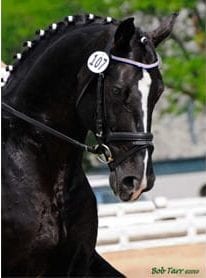 FREE TO ALL
FREE TO ALL
Please join our online community for an in-depth discussion of the Rhineland studbook! The Rhineland studbook is the sister studbook to the Hanoverian studbook and managed by the American Hanoverian Society. Dr. Ludwig Christmann of the Hannoveraner Verband will begin our discussion with a look at the history of the Rhineland horse. He will also speak about the most important stallions that had the greatest influence on the breed. And lastly, he will talk about some exciting Rhineland horses competing today.
Our next speaker, Rick Toering of the AHS will highlight the advantages of the Rhineland studbook and its place in America. He will also speak to the flexible registration options the studbook allows. And finally, we will hear from two breeders who use the Rhineland studbook for its workable registration options and its convenience. Questions are always welcome!
| American Hanoverian Society Webinar-20210527 1705-1 |
| Thursday, May 27, 2021 |
| 3:08 PM | (UTC-04:00) Eastern Time (US & Canada) |
| Play recording (1 hr 21 mins) Recording password: mFeMw9Jy |

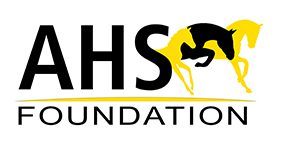 Through the support of the American Hanoverian Society Foundation, we are pleased to share these previously recorded webinars as educational resources. We also offer a series of live webinars that are not recorded. These webinar dates are published in our newsletter and on our social media feeds.
Through the support of the American Hanoverian Society Foundation, we are pleased to share these previously recorded webinars as educational resources. We also offer a series of live webinars that are not recorded. These webinar dates are published in our newsletter and on our social media feeds.